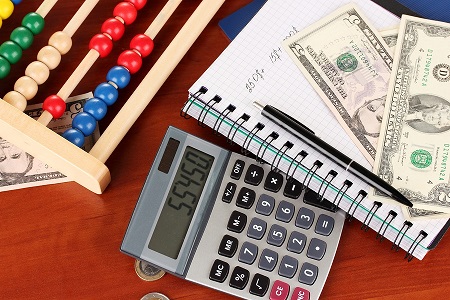Manage Your Debt - Let's Explore Your Options
GET STARTED NOWQuick Guide to Better Credit

One of the common questions we are asked is how to improve a credit report. While there are no quick fixes to credit that is less than perfect, there are things you can do to help it over time. This primer is meant to hit the highlights of building good credit.
First, you have to pay bills on time. Even if you cannot go backwards and pay off old bills, paying everything new will ensure nothing else negative is reported to the credit bureaus. Say you have $200 that you can put towards bills. Should you pay the old collection account on your credit report? Or, should you pay the cell phone bill that is one month behind? Hopefully the cell phone bill will win. If you do not pay the cell phone bill, it could end up on your credit report beside that old collection bill.
We are not saying not to pay the bills you owe; we are saying you have to focus your money in the direction where it will do the most good. If you have $400, pay both items. The collection account item will remain on your credit report until it has reached the seven year mark, but at least it will show as paid.
The second item is balances. Specifically, the balances you keep on credit cards. The most you want to show as owing on a credit card is 30% of the available credit limit. So if you have a credit card with a $1,000 limit, the most you would want to have owing is $300. If you owe more than that it will start to erode your credit score. The more you owe, the worse it gets. The less you carry, the better it gets. This is true not only for a credit score, but also for your pocket book. If you carry a balance each month, you will pay interest on that amount. That is more money out of your pocket.
The third item is adding positive information to your credit report. This in turn helps a credit score. If you are not using credit at all and want to establish positive information in your file, there are two good options.
Open a secured credit card. A secured credit card works similarly to a regular credit card, however it is secured by money you put in the bank – a deposit. This is not a prepaid paid card. You give the bank $300 - $500 and they issue you a credit card in that amount. They money you gave them stays in the bank. Your job is to use the card responsibly and build a good payment history. That means you charge something, pay it off and do the same thing again. You do not need to carry a balance to build credit. Pay the balance off in full each month.
Typically after six-to-18 months, the bank will either return your deposit or increase your credit limit above the amount of the deposit. It takes at least six months of reporting to generate a positive history.
You have to be careful in selecting a secured credit card. There are good cards out there with low fees, but there are also cards with high fees.
Open a share-secured loan. Share-secured loans are typically available only in credit unions. They are also good for building a positive credit history. These loans are secured by the money you deposit in the credit union. The money in your account acts as collateral for the loan. The credit union then lends you the money, but places a hold on the funds they are using for collateral. As you make payments on the loan, the money being held is freed up for you to use. The best idea is to set up automatic payments from a checking account to the loan account. This will help make sure you never miss a payment.
If you already have credit accounts, making payments on time can help improve your current credit rating. If you are behind, do what you can to become current and stay current. The farther you get away from the missed payments, the less of an impact they will have on your credit score.
Published Jun 24, 2014.
